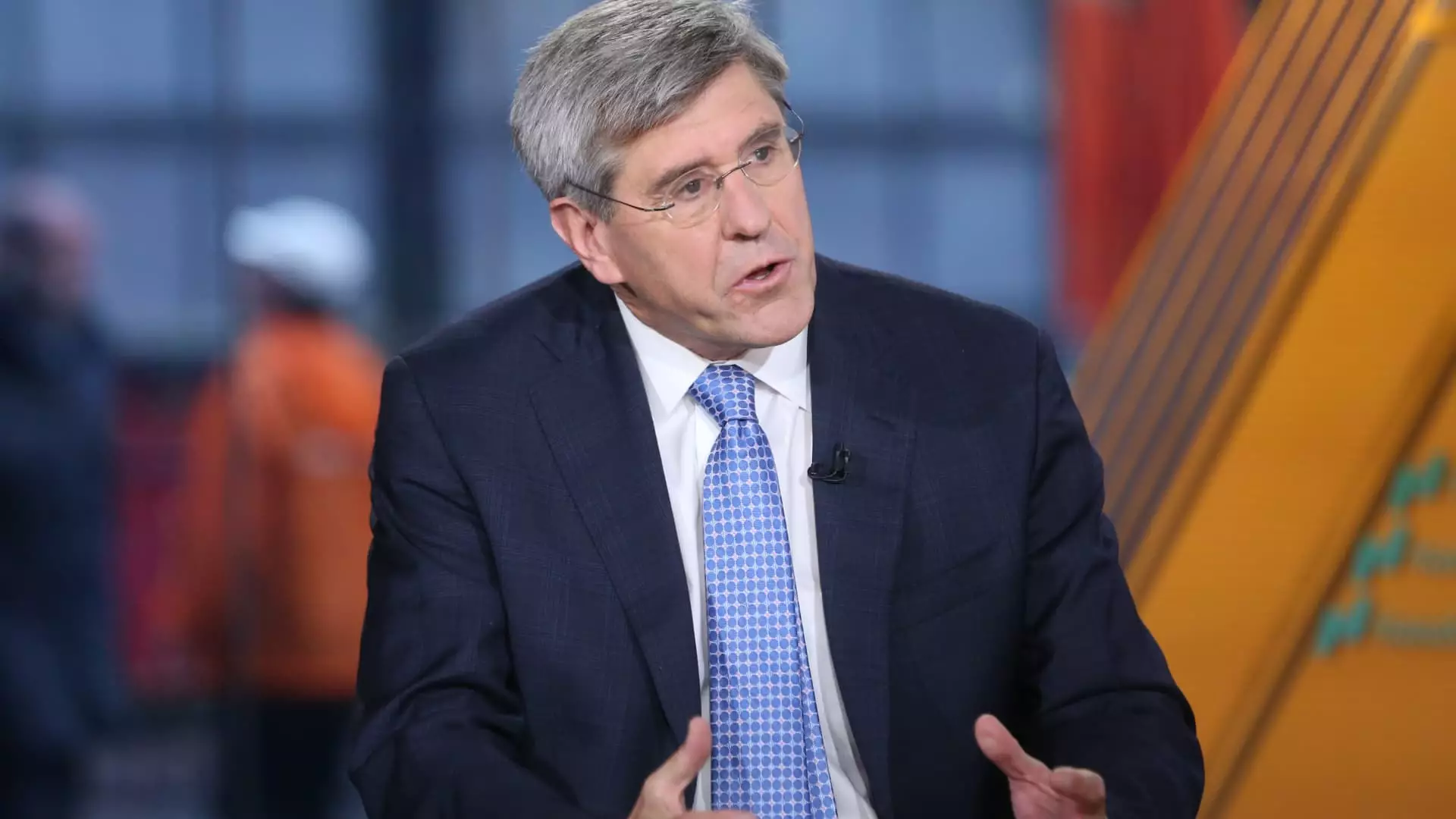The global economy is increasingly characterized by the strategic use of tariffs, which, as highlighted by Stephen Moore, a former economic advisor to Donald Trump, have taken center stage in U.S.-China relations. Moore’s observations during a recent financial conference illustrate the nuanced interplay between economic policies, international negotiations, and national interests. Tariffs are no longer merely fiscal mechanisms; instead, they are wielded as instruments of negotiation—tools designed to assert dominance in an increasingly competitive global landscape.
One of the critical points made by Moore is the disparity in the economic resilience of China and the U.S. to tariff-induced pressures. He posits that China’s “pain threshold” for sustaining tariffs is significantly lower than that of the U.S. This differential establishes a strategic advantage for the United States in its ongoing economic standoff. The implications of this argument extend beyond mere fiscal analysis; they suggest that China’s current economic stability is fragile, leaving it vulnerable to further tariffs and prompting questions about its ability to sustain a long-term trade conflict with the United States.
Moore’s assessment raises important considerations regarding the implications of sustained tariffs on both nations’ economies. While both countries face challenges in the face of escalating trade tensions, the potential long-term damage to China’s economy raises concerns about its ability to rebound from such pressures. In a context where economic growth is increasingly scrutinized, the repercussions of a tariff war could stifle China’s economic aspirations while bolstering U.S. economic interests in the short term.
Moreover, Moore’s comments reflect a broader narrative surrounding the desire for global economic supremacy. His assertion that U.S. tariffs represent a struggle for dominance aligns with a growing sentiment in American political discourse that emphasizes the need for a strategic approach to global trade relations. The stakes in this “battle for global economic dominance” are high; both nations are engaged in a chess game, with each move carefully calculated to weaken the opponent’s economic standing.
Furthermore, Moore’s criticism of Europe’s position in this dynamic adds another layer of complexity. He suggests that Europe may face an existential choice—align with the U.S. in countering China’s rise or risk being overshadowed by its economic might. This geopolitical lens adds fuel to the fire of an already contentious trade relationship, positioning tariff strategies as not just economic tools but ideological battlegrounds. Nations must evaluate their alliances carefully, as the fallout from the U.S.-China trade dispute continues to evolve.
Domestic Policies and International Consequences
The argument extends into the realm of domestic policy, particularly concerning the U.S. administration’s motivations for tariffs beyond China. Moore’s remarks about President Trump’s tariffs aimed at Mexico and Canada underscore a multi-faceted approach to international trade that intertwines domestic concerns such as drug trafficking with global economic policy. This represents a significant shift in how trade agreements are negotiated and perceived, signaling a departure from traditional economic interactions toward a more complicated interplay of security and commerce.
The potential tariffs on drugs underscore a crucial nexus between foreign policy and public health, indicating that the administration is prepared to leverage trade relations in pursuit of domestic goals. However, such measures also invite pushback; as seen with China’s rebuttal of the fentanyl claims, diplomatically charged rhetoric complicates already tense relations.
As the U.S.-China trade landscape continues to shift, the potential for further escalation remains. Economists and political analysts alike warn of the risks involved—it is essential to bear in mind the broader implications of such conflicts on global trade dynamics. The reality is that while tariffs can serve as vital tools for national interests, they can also provoke unintended consequences that ripple through the global economy.
The tug-of-war between the U.S. and China elucidates the delicate balance required in international relations, where economic tools must be wielded judiciously to avoid mutual destruction. As the global community continues to observe, the outcome of this ongoing negotiation will inevitably shape the future economic interactions among nations and set the stage for a new chapter in the narrative of global trade.

Leave a Reply